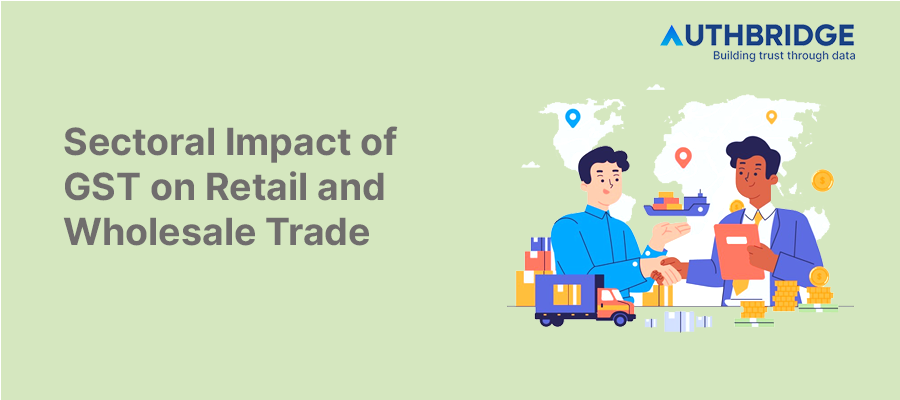GST's Influence On Retail And Wholesale Trade

The Goods and Services Tax (GST) has been a transformative change in the Indian taxation landscape, impacting various sectors of the economy. Regarded as the most significant reform in indirect taxation, GST aimed to create a unified tax system, thereby eliminating the cascading effect of taxes and ensuring a seamless flow of credit. This section will explore how GST has reshaped the economic foundation, particularly focusing on its impact on the retail and wholesale trade sectors.
GST's Role in Retail and Wholesale Trade
The retail and wholesale trade sectors, which are predominantly unorganized and rely heavily on cash transactions, have seen a significant shift post-GST. The introduction of GST has not only facilitated a more organized way of doing business but also provided a level playing field for both large and small enterprises. By implementing an internet-based tax system assessed at every value addition point, GST has encouraged transparency and compliance across the board.
Impact on Retail Sector
Benefits for Small Retailers
One of the notable impacts of GST on the retail sector is the empowerment of small retailers. The ability to claim input tax credits has been a game-changer, reducing the overall tax burden and enabling more competitive pricing strategies. Additionally, GST has simplified the process of entering new markets, making it easier for small retailers to expand their business horizons.
Simplification of Market Entry
The streamlined tax structure under GST has significantly reduced the bureaucratic hurdles previously faced by businesses looking to expand into new markets. With uniform tax rates and simplified compliance procedures, retailers can now focus more on their business strategies rather than being bogged down by complex tax regulations.
Impact on Wholesale and Distribution
Effect on Supply Chain and Tax Obligations
Contrary to the belief that GST has increased the tax burden on wholesalers and distributors, the new tax regime has, in fact, made the supply chain more transparent. By enabling online tracking of transactions, GST has curtailed the widespread tax evasion prevalent in the wholesale and distribution sectors. Although certain segments like telecom distributors initially faced challenges due to higher GST rates, there is an anticipation of these sectors moving to a lower tax slab in the future.
Online Tracking and Tax Evasion
The digitalization of tax processes under GST has brought about a significant reduction in tax evasion. The entire supply chain, from manufacturers to end consumers, is now more transparent, allowing for better compliance and fair competition.
Challenges Post-GST Implementation
Technical and IT System Challenges
The rapid implementation of GST posed significant challenges for wholesalers and retailers, especially in updating their IT systems to accommodate the new tax rates and classifications. The frequent changes in GST rates necessitated continuous updates to ERP systems, impacting pricing strategies and operational efficiency.
Pricing and Product Classification Issues
The four-tier GST rate structure has led to confusion and disputes over product classification, complicating the tax filing process for retailers. The ambiguity in product categorization has exacerbated the challenges, sometimes leading to dual categorization for certain items.
E-commerce and Tax Collected at Source (TCS) Concerns
The introduction of TCS under GST for e-commerce transactions has introduced new complexities, including discrepancies in TCS returns and timing differences in deductions. E-commerce operators are now required to deposit TCS on every transaction, which has implications for sellers' tax liabilities and compliance.
Conclusion
The implementation of GST has significantly impacted the retail and wholesale sectors, bringing both challenges and opportunities. While the transition has not been without its hurdles, the benefits of a unified tax system, such as input tax credits and simplified market entry, are undeniable. As the GST framework continues to evolve, it is expected that further refinements will address the current challenges, paving the way for a more efficient and transparent tax system.
Category

Abhinandan Banerjee
(Associate Manager - Marketing)
Abhinandan is a dynamic Product and Content Marketer, boasting over seven years of experience in crafting impactful marketing strategies across diverse environments. Known for his strategic insights, he propels digital growth and boosts brand visibility by transforming complex ideas into compelling content that inspires action.



